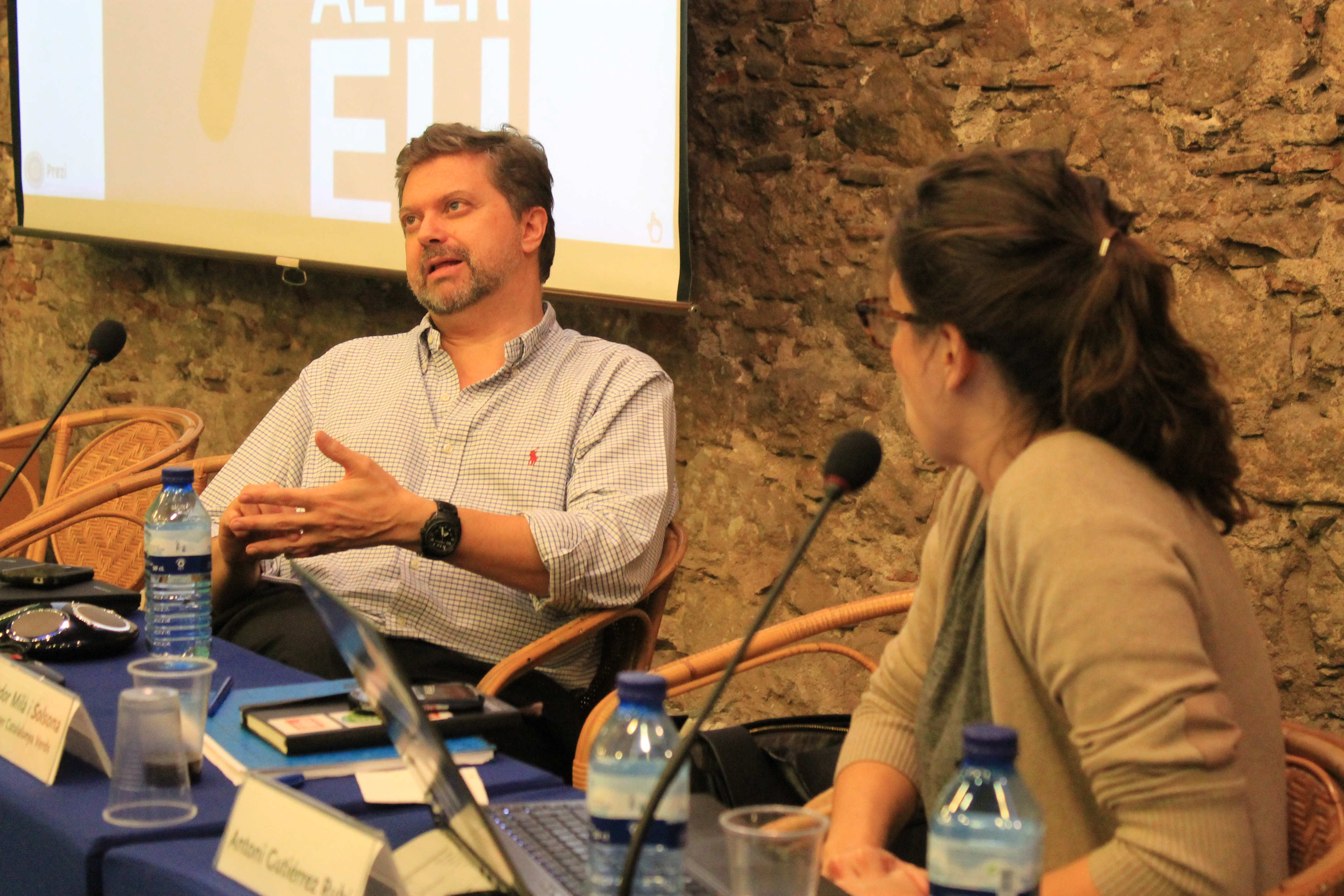Date:
22 October, 2012
Location:
Barcelona
Public Debate organized by Access Info Europe, 22 October 2012, Barcelona
Summary and outcomes of the Debate
As a follow-up to the workshop on citizen participation and lobby regulation held in Navacerrada in early September, Access Info Europe organised a public debate in Barcelona on 22 October 2012. The debate was titled Citizen proposals for lobby regulation and was moderated by the communications specialist Antoni Gutiérrez Rubí.

Participants at the open debate were Fernando Golmayo, Vicepresident and Founder of the Spanish Association of Institutional Relations Professionals, Koen Roovers, Coordinator of ALTER-EU (Alliance for Lobbying Transparency and Ethics Regulation in the EU) and Salvador Milà y Solsona, a member of the Catalan Parliament and representative of the left-wing Parliamentary group Esquerra ICV-EUiA. The position of the conservative party (Partido Popular) was submitted ahead of the debate by Santiago Cervera Soto, the rapporteur on transparency for the Spanish Parliament, and was communicated to the audience during the session by an Access Info staff member, Victoria Anderica.
Both events aim to address the current lack of lobby regulation in the Spanish legal system, whilst articulating new strategies for citizen participation across Europe. This dual-focus on lobbying and participation is due to the popular sentiment that lobbies may exert their influence on politicians and officials in more efficient way than ordinary citizens, and that this can lead to decision-making that does not favour the public interest.
Citizen Proposals for Lobby Regulation
Conclusions of the debate
During the debate an agreement was reached on the need to integrate the principle of transparency throughout the whole decision-making process, and that this transparency should apply both to interest representatives and to public officials.
It was also agreed that lobbying is a legitimate type of participation and that it is not intrinsically bad, unless it is done under unregulated conditions and out of the reach of public scrutiny. Emphasis was placed on the need to strengthen channels of public participation so that citizens can also lobby effectively and have their opinions taken into account.
It was agreed that the first step would be the creation of a mandatory register in which all lobbyists must be included, along with information about their clients, their members (individuals and companies), the scope of their portfolio, the interests being represented, the resources being deployed and the target of lobbying efforts (including which institution and which decisions).
Additionally, a code of conduct for lobbyists and strict ethics regulation for officials and politicians was mentioned, although there was some insistence that these matters should be regulated under the Penal Code instead. In any case, it was clear that an adequate and comprehensive sanctioning regime ought to be developed that provides proportional penalties for different infringements, effectively dissuading practices that escape public scrutiny.

